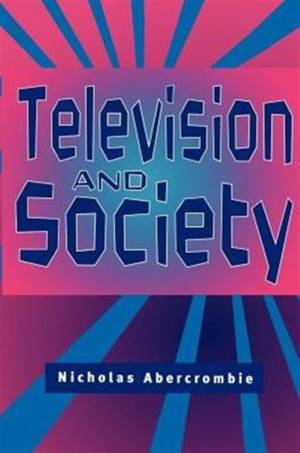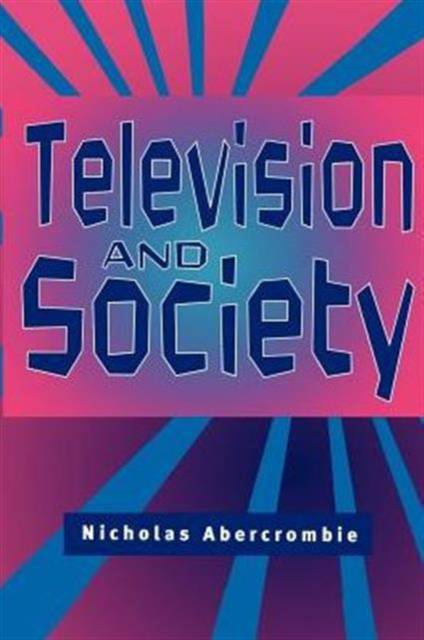
- Retrait gratuit dans votre magasin Club
- 7.000.000 titres dans notre catalogue
- Payer en toute sécurité
- Toujours un magasin près de chez vous
- Retrait gratuit dans votre magasin Club
- 7.000.0000 titres dans notre catalogue
- Payer en toute sécurité
- Toujours un magasin près de chez vous
Description
Television and Society is a textbook designed to introduce students to the role of television in contemporary society. It explores the structure of the television text, the way in which that text is produced and the way it is consumed.
The first section deals with the analysis of television programmes as texts. It covers, for example, the issues of realism, narrative, genre and ideology, the domestication of television programming and the nature of soap opera and news. The section on the production of television deals firstly with the structure of the industry as a whole - the ways in which television is financed and distributed, the globalization of television and media imperialism, and the political economy of television. This is followed by a consideration of the internal workings of television organizations, including the role of the producer, the functioning of the production team, the television personality and the producer's perceptions of the audience. The final section investigates theories of the television audience and combines qualitative and quantitative studies. There is discussion on the history of audience research, methods of measuring the audience, the domestic context of viewing, and television talk.
Clearly written, Television and Society will be an ideal textbook for students in media studies, cultural studies and the sociology of culture.
The first section deals with the analysis of television programmes as texts. It covers, for example, the issues of realism, narrative, genre and ideology, the domestication of television programming and the nature of soap opera and news. The section on the production of television deals firstly with the structure of the industry as a whole - the ways in which television is financed and distributed, the globalization of television and media imperialism, and the political economy of television. This is followed by a consideration of the internal workings of television organizations, including the role of the producer, the functioning of the production team, the television personality and the producer's perceptions of the audience. The final section investigates theories of the television audience and combines qualitative and quantitative studies. There is discussion on the history of audience research, methods of measuring the audience, the domestic context of viewing, and television talk.
Clearly written, Television and Society will be an ideal textbook for students in media studies, cultural studies and the sociology of culture.
Spécifications
Parties prenantes
- Auteur(s) :
- Editeur:
Contenu
- Nombre de pages :
- 240
- Langue:
- Anglais
- Collection :
Caractéristiques
- EAN:
- 9780745614366
- Date de parution :
- 01-05-96
- Format:
- Livre broché
- Format numérique:
- Trade paperback (VS)
- Dimensions :
- 153 mm x 228 mm
- Poids :
- 344 g

Les avis
Nous publions uniquement les avis qui respectent les conditions requises. Consultez nos conditions pour les avis.






